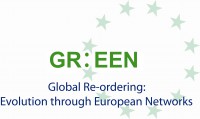Multipolar Learning: Organizing a New Modus Operandis for an Age of Globalization

Ours is an age of perplexity and flux. In one arena after another old habits and practices have been characterized by ruptures, blockages and conflicts. These ruptures and blockages do not only happen in peripheral parts of the socio-economic system, but has crept into what many considered to be the very core of governance regimes constructed in the aftermath of Fordism and Keynesianism (Aglietta 1976). The financial crisis of 2008 marked not only the rupturing of a subsystem of the post-Keynesian-Fordist system, but undermined the very core of that system as finance came to dominate both private enterprises and national governments. The ascendancy of finance emerged through systematic deregulation in the 1980s and 1990s, giving rise to the CFO and the market as primarily drivers of change (Zorn 2004). Postcrisis we can see that the crisis in financial market did not weaken the role of financial institutions in disciplining other parts of the economy, as can we see in the turn to austerity by all governments in the EU, where the body of politics simultaneously try re-establish the financial system and escape from being so heavily dependent on it (Blyth 2013).



